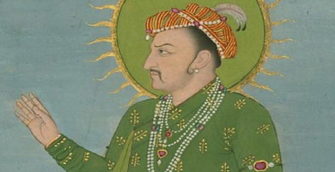
Prithviraj allowed him to go despite his generals asking him not to do so. Prithviraj captured Ghori and Ghori begged for his life. Ghauri is said to have vowed not to sleep on a bed or take a bath until he had defeated Prithviraj.ĭue to internecine quarrels, Ghauri was encouraged and abetted to wage another war on Prithvi Raj Chauhan by petty kingdoms, in which Prithviraj was defeated. Later both armies attacked each other and Ghauri’s army was defeated. In the First Battle of Taraori in 1191 Prithvi Raj Chauhan defeated Muhammad Ghouri, when he met Ghauri in personal combat and injured Ghauri.

A dispute over a fort on the border of 3 kingdoms (thought to be either Sirhind or Bathinda in Punjab) brought the armies of the 3 kingdoms into conflict at the First Battle of Tarain in 1191. The Muslim Ghaznavid Empire, which bordered Prithviraj’s kingdom to the north, was conquered by the Afghan Muhammad of Ghor towards the end of the 12th century. To this day, Prithviraj is considered to be a legendary hero and martyr by Hindus, and his lineage appears quite spread out covering vast tracts of Uttar Pradesh, Harayana, Rajasthan, Madhya Pradesh, Gujarat, Uttaranchal, Punjab, and Himachal Pradesh. His kingdom included much of the present-day Indian states of Rajasthan and Haryana, and parts of Uttar Pradesh and Punjab. He campaigned against the Chandela Rajputs of Bundelkhand. Delhi was captured from the Tomara Rajputs during the early years of his reign and was renamed Qila Rai Pithora. The Chauhan succession had been rather confused since the death of Vigraha-raja in 1165 Prithviraj reconsolidated control of the Chauhan kingdom and conquered several neighboring kingdoms, which made his state the leading Hindu kingdom in northern India. His elopement with Samyukta, the daughter of Jai Chandra, the Gahadvala king of Kannauj, is a popular romantic tale in India and is one of the subjects of the Prithviraj Raso, an epic poem composed by Prithviraj’s court poet, Chand Bardai. 1179, while still a minor, and ruled from the twin capitals of Ajmer and Delhi.

1168 to king Someshwara Chauhan and his wife Karpuravalli. Prithviraj Chauhan was a king of the Kshatriya Chauhan (Chahamana) dynasty, who ruled a kingdom in northern India during the latter half of the 12th century.


 0 kommentar(er)
0 kommentar(er)
